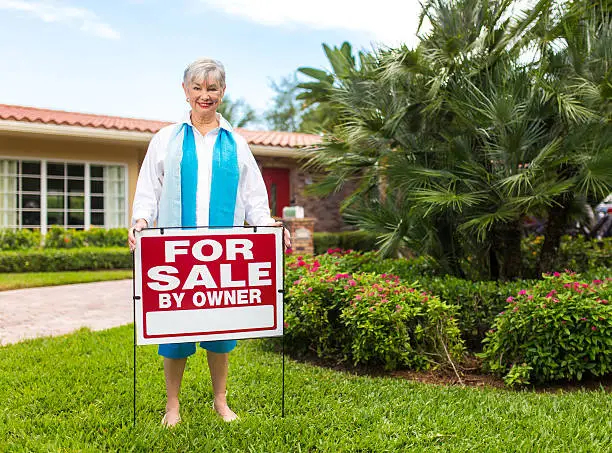The real estate world is no stranger to legal disputes, but the ongoing 72 Sold lawsuit is garnering significant attention due to its potential to affect the industry at large. The 72 Sold business model, which promises to sell homes quickly—often within 72 hours—has shaken up the traditional real estate approach. However, the lawsuit against the company raises concerns about transparency, business practices, and the future of real estate.
In this blog post, we’ll break down the 72 Sold lawsuit and explore how it could impact the real estate industry.
What Is 72 Sold?
To understand the significance of this lawsuit, it’s essential to first understand what 72 Sold is. The company offers a different approach to selling homes compared to traditional real estate methods. Rather than following the standard listing process, 72 Sold promotes a quick-sale strategy using aggressive marketing and competition among buyers.
The program focuses on creating urgency, which they claim leads to faster sales and often at higher prices. This has attracted homeowners who want to sell their properties quickly without the hassle of open houses and multiple showings. But the lawsuit has brought this model under scrutiny, challenging whether the company truly delivers on its promises.
The 72 Sold Lawsuit: What’s It About?
The lawsuit against 72 Sold involves allegations of misleading advertising and questionable business practices. Homeowners involved in the legal case claim that 72 Sold has not lived up to its promises of quick sales and better prices. Instead, some homeowners have found their homes unsold or sold at lower prices than expected.
The lawsuit accuses 72 Sold of using deceptive marketing tactics, leading homeowners to believe that they could sell their homes faster and for more money than the company is actually capable of delivering. As the case moves forward, it focuses on whether the company’s advertising violated consumer protection laws by creating false expectations.
How Could This Lawsuit Impact Real Estate Marketing?
One of the major ways this lawsuit could impact the real estate industry is through changes in how real estate services are marketed. The industry heavily relies on marketing to attract clients, and companies like 72 Sold have built their business on bold, attention-grabbing claims.
If the lawsuit results in legal action, it could lead to stricter regulations on how real estate companies advertise their services. Firms may need to be more careful with their claims, ensuring they are backed by data and can be delivered consistently. Promises of fast sales or higher profits might be scrutinized more closely, forcing real estate companies to shift toward more transparent, fact-based marketing.
This shift could improve trust between homeowners and real estate professionals, leading to clearer communication about what sellers can realistically expect when listing their homes. Ultimately, it could create a more honest real estate landscape where marketing reflects real results rather than exaggerated claims.
Increased Scrutiny on Alternative Home-Selling Models
The 72 Sold lawsuit also puts a spotlight on alternative home-selling models that differ from traditional real estate methods. Over the past decade, many companies have introduced new approaches, such as iBuyers and instant-offer platforms, promising faster and more convenient home sales.
While these models offer speed, they often come with trade-offs, such as lower sale prices or hidden fees. The 72 Sold approach blends traditional real estate practices with fast-selling methods, but the lawsuit could spark a closer examination of how these alternatives operate and whether they truly benefit homeowners.
If stricter regulations are imposed as a result of the lawsuit, other companies offering quick-sale models may also face increased scrutiny. Real estate firms will likely need to be more transparent about their processes, fees, and the outcomes homeowners can expect. This could lead to more informed decision-making for sellers exploring different home-selling options.
Implications for Real Estate Agents
The lawsuit against 72 Sold may also have consequences for real estate agents. Some industry professionals argue that the 72 Sold model downplays the importance of the traditional agent’s role, emphasizing speed over personalized service and expertise.
If the lawsuit leads to changes in how companies like 72 Sold operate, it could strengthen the role of real estate agents who provide value through market knowledge, tailored strategies, and relationship-building with clients. Agents who focus on offering personalized services may see their importance rise as homeowners look for more reliable, transparent options.
On the flip side, agents may need to adapt to compete with fast-sale models by offering more efficient services while still maintaining the personalized touch that many homeowners appreciate. The lawsuit could encourage agents to rethink their approach, finding ways to streamline the sales process without sacrificing the quality of service.
Legal and Regulatory Impacts
If the plaintiffs win the 72 Sold lawsuit, it could set a legal precedent that influences future cases in the real estate industry. Regulators may take a closer look at how real estate companies operate, particularly when it comes to marketing practices and consumer protection.
The outcome of the lawsuit could lead to tighter regulations that push real estate firms to adopt more transparent practices. Companies might be required to provide clearer terms and conditions to clients, ensuring that homeowners fully understand what they’re signing up for. This could offer greater protection for consumers and potentially reshape the way real estate transactions are handled.
Building Trust and Industry Reputation
Lastly, the 72 Sold lawsuit could have a long-term impact on consumer trust within the real estate industry. As alternative selling models grow in popularity, homeowners need to feel confident that the services they’re using are legitimate and trustworthy. Legal disputes like this one can create doubt and skepticism among consumers.
To regain and maintain trust, real estate companies will need to prioritize transparency, open communication, and delivering on their promises. Whether through honest marketing or results-driven services, companies must show that they value long-term client satisfaction over quick sales.
Conclusion
The 72 Sold lawsuit is more than just a legal case; it has the potential to reshape the real estate industry. From changes in marketing practices to increased scrutiny of alternative selling models, the outcome of this lawsuit could set a new standard for how real estate companies operate.
For homeowners, real estate agents, and companies, it’s essential to stay informed about how this case unfolds, as it could have lasting effects on the future of home sales. Whether it leads to more transparency, stronger consumer protections, or a renewed focus on personalized service, the 72 Sold lawsuit could be a turning point for the industry.











